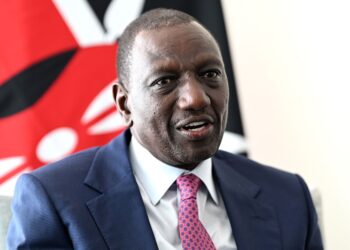Larry Madowo’s Tanzania election witness appeal has resonated across East Africa as the CNN international correspondent urges citizens to share firsthand accounts of the chaotic October 29 polls and ensuing protests.
In a heartfelt video posted on November 6, Madowo, speaking directly to camera from an undisclosed location, opened his inbox for videos, photos, and testimonies amid a sweeping media blackout imposed by President Samia Suluhu Hassan’s administration.
“This is an appeal to Tanzanians. Please tell me what you saw. My inbox is open. Tafadhali nisaidieni,” he pleaded in a mix of English and Swahili, his voice steady but urgent as CNN ramps up a special report on the suppressed truths behind the official narrative of a peaceful vote.
The call comes as Tanzania grapples with its most turbulent election cycle in decades, where CCM’s landslide victory, securing Suluhu another term with over 98 percent, has been branded a “sham” by opposition Chadema leader Tundu Lissu.
Independent observers, barred from entry, reported widespread irregularities: ballot stuffing in opposition strongholds, internet shutdowns crippling live updates, and security forces unleashing tear gas and live rounds on demonstrators in Dar es Salaam, Mbeya, and Arusha.
Amnesty International tallies at least 100 deaths since polling day, a figure the government dismisses as “foreign propaganda”, while local outlets face gag orders under the Media Services Act.
However, the opposition claims that over 1000 people may have lost their lives in the protests.
Madowo, a Kenyan journalist renowned for his African Voices series, revealed the hurdles blocking traditional coverage.
International crews, including CNN, were denied visas or accreditation, forcing reliance on citizen journalists risking arrest for filming.
“We’re in the process of creating and telling the world what really transpired in Tanzania after the president banned all international media and local media coverage,” he explained.
His DMs, flooded with anonymous submissions, include grainy footage of midnight raids and bloodied protesters, sources too terrified for on-camera interviews.
Reactions poured in swiftly, blending gratitude and caution. Chadema supporters hailed Madowo as a “beacon in the blackout”, with one X user replying, “Baba, videos ziko inbox already. Asante kwa sauti yetu.”
Critics from pro-CCM circles accused him of “meddling,” with one state-aligned account tweeting, “Larry wants chaos for clicks. Tanzania is peaceful.”
This isn’t Madowo’s first dance with regional firestorms. The former NTV anchor, now based in New York, has covered Sudan’s upheavals and Kenya’s finance bill riots, earning a reputation for amplifying marginalised voices.
His appeal aligns with CNN’s push for grassroots sourcing, similar to Ukraine war citizen reports that shaped global narratives.
Dangers loom: contributors face up to seven years under cybercrime laws for “false information”, prompting Madowo to stress anonymity protocols.
Internationally, the blackout draws sharp rebukes. The African Union demanded an independent probe, while the US State Department flagged “deep concerns” over suppressed freedoms.
Billionaire Mo Ibrahim, in a CNN interview with Madowo, lambasted the polls as “inappropriate and unacceptable”, echoing calls for electoral reform.
As submissions trickle in, Madowo’s inbox becomes a digital archive of defiance, piecing together a mosaic the regime can’t erase.
In a nation where silence is enforced, Larry Madowo’s Tanzania elections witness appeal stands as a clarion for truth. With CNN’s report slated for prime time next week, one journalist’s open DM could rewrite the story of a contested mandate. Tanzanians, the world is listening; will you speak?















